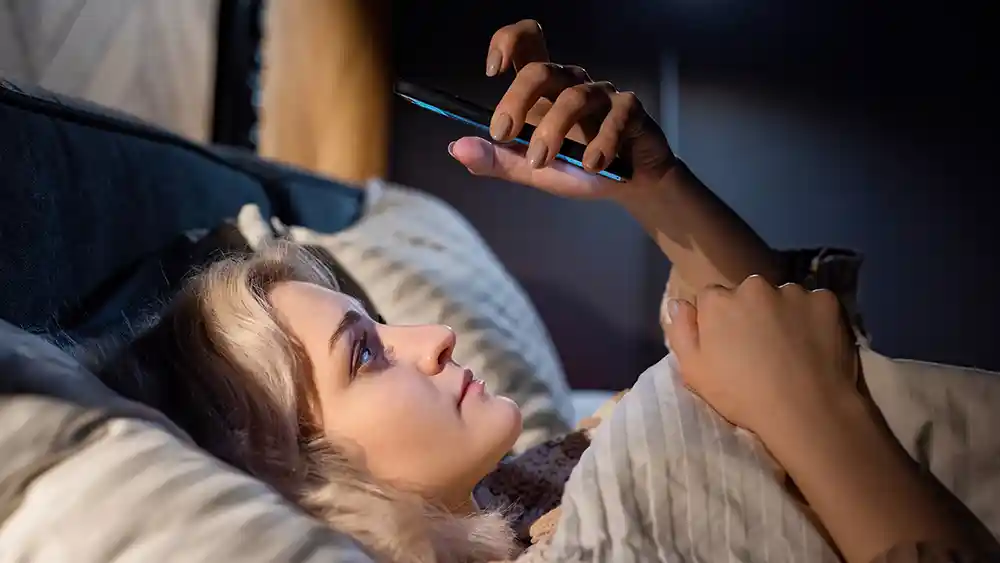

In today’s tech-driven world, blue light is everywhere—from your phone and laptop screens to the LED lighting in your home. While it may help you stay alert during the day, excessive blue light exposure at night can seriously disrupt your sleep hormones, affecting both your physical and mental well-being.
Let’s dive into how blue light impacts two key hormones, melatonin and cortisol, and explore simple ways to protect your brain and sleep health.
Melatonin: The Sleep Hormone
Melatonin is a hormone your brain produces to regulate your sleep-wake cycle. Blue light exposure, especially during the evening, can drastically reduce melatonin production.
- Melatonin Suppression: Studies show that blue light can suppress melatonin by up to 85%, delaying its production and making it harder to fall asleep. This can lead to:
- Trouble falling and staying asleep.
- Poor sleep quality.
- A disrupted sleep-wake rhythm.
Cortisol: The Stress Hormone
Cortisol is your body’s natural alarm clock, peaking in the morning to wake you up and tapering off at night to help you relax. However, late-night blue light exposure can cause:
- Increased Cortisol Levels: Blue light tricks your brain into thinking it’s daytime, leading to elevated cortisol levels when your body should be winding down. This can:
- Increase stress and anxiety.
- Disrupt your sleep patterns.
- Leave you feeling groggy and unfocused the next day.
Why This Matters for Brain Health
Chronic disruption of melatonin and cortisol rhythms doesn’t just affect your sleep—it also has long-term implications for brain health, including:
- Cognitive Impairment: Poor sleep can harm memory, focus, and decision-making skills.
- Mental Health Risks: Elevated cortisol is linked to anxiety, depression, and mood swings.
- Neurodegeneration: Ongoing sleep disturbances may increase the risk of Alzheimer’s and other neurodegenerative diseases.
How to Minimize Blue Light’s Impact
Thankfully, you don’t have to give up technology entirely. Here are some practical tips to reduce blue light exposure and improve your sleep quality:
1. Limit Screen Time Before Bed
- Avoid using phones, laptops, or other screens at least 1-2 hours before bedtime.
2. Use Blue Light Filters
- Invest in blue light-blocking glasses or install apps like Night Shift or f.lux to filter blue light on your devices.
3. Create a Sleep-Friendly Lighting Environment
- Opt for dim, warm-toned lights in the evening instead of harsh LED lighting.
4. Stick to a Consistent Sleep Schedule
- Go to bed and wake up at the same time every day to support your body’s natural hormonal rhythms.

Helping clients improve brain health and prevent Alzheimer’s through expert coaching.
Navigate

Helping clients improve brain health and prevent Alzheimer’s through expert coaching.
Navigate

Helping clients improve brain health and prevent Alzheimer’s through expert coaching.
